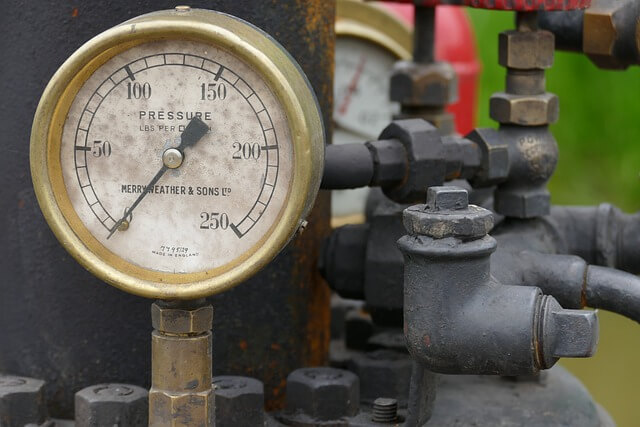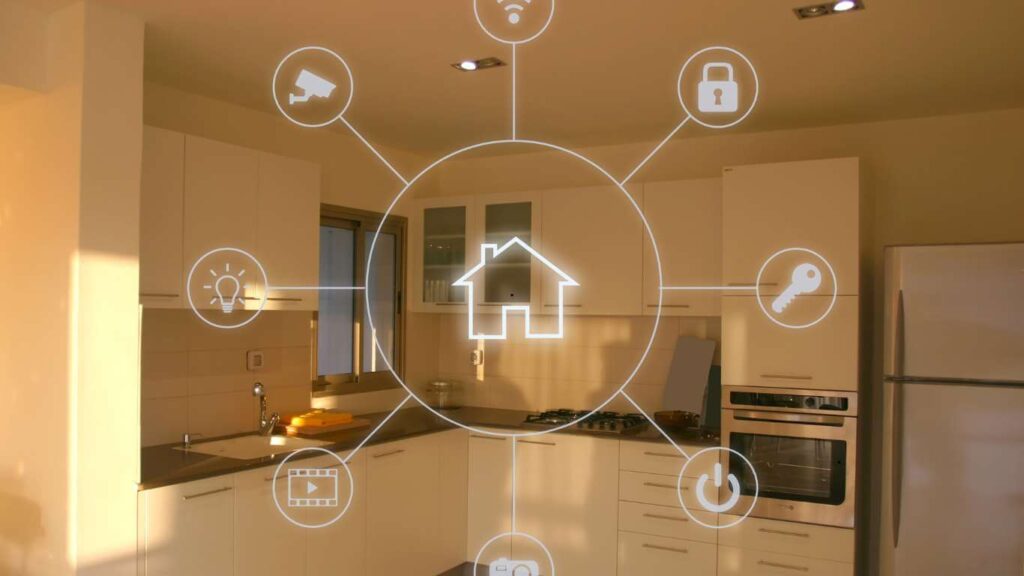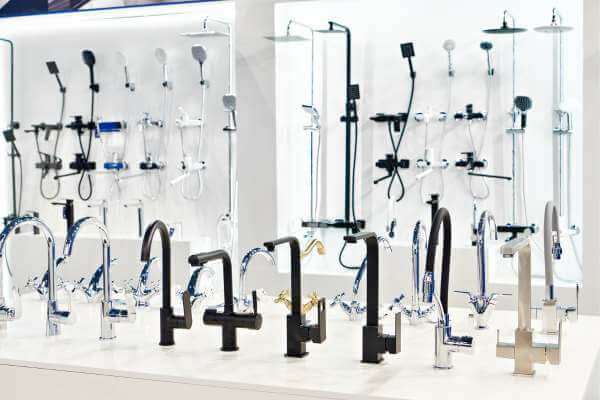A bad water heater can cause a lot of problems in your home, including low water pressure. Low water pressure can be an annoying problem that can affect your daily routine. It can take forever to fill up a glass of water or take a shower. If you’re experiencing low water pressure, it’s important to understand what could be causing it.
Understanding water pressure is key to understanding how a bad water heater can affect it. Water pressure is the force that pushes water through your pipes and into your home. It’s measured in pounds per square inch (PSI). The higher the PSI, the stronger the water pressure. If your water pressure is too low, it can be difficult to get enough water to flow through your pipes. This is where a bad water heater comes in.
A bad water heater can cause low water pressure in a number of ways. For example, a buildup of sediment in the tank can cause a blockage in the pipes, reducing water flow. Additionally, a malfunctioning pressure relief valve can cause low water pressure. It’s important to recognize the signs of a bad water heater and take action before it causes further problems.
Key Takeaways
- Water pressure is the force that pushes water through your pipes and into your home.
- A bad water heater can cause low water pressure by causing blockages in the pipes or a malfunctioning pressure relief valve.
- Recognizing the signs of a bad water heater and taking action can prevent further problems.
Understanding Water Pressure
Water pressure is the force that pushes the water through the pipes and out of the faucets. It is measured in kilopascals (kPa) or pounds per square inch (psi). The standard water pressure for most homes is between 40-60 psi.
Low water pressure can be caused by several factors, including clogged pipes, leaks, and faulty fixtures. It can also be caused by a bad water heater. When the water heater is not functioning properly, it can cause a reduction in water pressure, especially in the hot water supply.
The water pressure in a home can be affected by several factors, including the height of the home, the size of the pipes, and the distance from the water source. The water pressure can also be affected by the number of fixtures that are being used at the same time.
It is important to maintain the correct water pressure in a home to ensure that the fixtures and appliances are functioning properly. If the water pressure is too low, it can cause the fixtures to leak, and if the water pressure is too high, it can cause damage to the pipes and fixtures.
Regular maintenance of the plumbing system can help to prevent low water pressure caused by a bad water heater. It is important to have the water heater inspected and serviced regularly to ensure that it is functioning properly. If the water pressure is still low after the water heater has been serviced, it may be necessary to replace the water heater.
Water Heater Basics
A water heater is a household appliance that is responsible for heating and supplying hot water to your faucets, showers, and appliances. There are two main types of water heaters: traditional hot water tanks and tankless water heaters.
A traditional hot water tank stores and heats a large amount of water in a tank, which is then used as needed. A tankless water heater, on the other hand, heats water on demand, without the need for a storage tank.
Both types of water heaters have a thermostat, which controls the temperature of the water. The thermostat is usually set to around 120 degrees Fahrenheit to prevent scalding and save energy.
Water heaters also have an anode rod, which prevents the tank from rusting and corroding. The anode rod attracts corrosive particles and sacrifices itself to protect the tank. It is important to replace the anode rod periodically to ensure the longevity of the tank.
Overall, a water heater is an essential appliance for any household that requires hot water. It is important to maintain and service the water heater regularly to ensure its optimal performance and prevent any potential issues such as low water pressure.
Common Causes of Low Water Pressure
Low water pressure can be a frustrating problem for homeowners. It can make it difficult to take a shower, wash dishes, or even water your lawn. There are several common causes of low water pressure, including blockages, sediment buildup, corrosion, and hard water.
Blockages
Blockages are one of the most common causes of low water pressure. They can occur in pipes, fixtures, and valves. A blockage can be caused by a clog, sediment buildup, or even a broken pipe. If the blockage is in a fixture, such as a showerhead or faucet, it can usually be cleaned or replaced. If the blockage is in a pipe or valve, it may require professional plumbing services to fix.
Sediment Buildup
Sediment buildup is another common cause of low water pressure. It can accumulate in pipes over time, especially if you have hard water. Hard water contains minerals like calcium that can cause sediment buildup. The sediment can restrict water flow and cause low water pressure. Flushing your pipes periodically can help prevent sediment buildup.
Corrosion
Corrosion can also cause low water pressure. Over time, pipes can corrode and develop leaks. This can restrict water flow and cause low water pressure. Corrosion can also damage valves and fixtures, leading to low water pressure. If you suspect corrosion is the cause of your low water pressure, it’s important to have a professional plumber inspect your pipes and fixtures.
Hard Water
Hard water is water that contains high levels of minerals like calcium and magnesium. These minerals can build up in pipes and fixtures over time, causing low water pressure. If you have hard water, you may need a water softener to remove the minerals and prevent sediment buildup.
Other Causes
Other causes of low water pressure include:
- Faulty pressure regulator
- Partially closed shut-off valve
- Plumbing leaks
- Friction from sharp bends or central blockages
- Kinks in pipes
If you’re experiencing low water pressure, it’s important to determine the cause so you can address the problem and restore normal water flow.
How a Bad Water Heater Can Affect Water Pressure
A bad water heater can cause low water pressure in a home. This is because the water heater is a critical component of the plumbing system, and if it is not working properly, it can affect the flow of water throughout the house.
One of the most common ways that a bad water heater can affect water pressure is by reducing the amount of hot water available. When a water heater is not functioning correctly, it may not be able to heat water as efficiently as it should, which can lead to a reduced flow of hot water. This can cause a decrease in overall water pressure, as the hot water is not able to mix with the cold water as it should.
Another way that a bad water heater can affect water pressure is by causing a loss of water flow. If the water heater is not working correctly, it may not be able to maintain the proper water pressure throughout the house. This can lead to a loss of pressure in the shower, sink, and other areas of the home.
If the water heater issue is not addressed promptly, it can lead to a complete loss of water flow. This can be a serious problem, as it can prevent the occupants of the home from accessing water for drinking, cooking, and cleaning.
In general, a failing water heater will cause a performance loss that can affect the entire plumbing system. It is essential to address any issues with the water heater promptly to avoid a loss of water pressure and other plumbing problems.
Signs of a Bad Water Heater
A water heater is one of the most important appliances in a household, providing hot water for various purposes. However, a bad water heater can cause several issues, including low water pressure. Here are some signs that your water heater might be failing:
- Leaking water: If you notice water leaking from the heating tank or pooling under the unit, it could be a sign that your water heater is failing. The leak could be due to loose connections or valves that need tightening or replacing.
- Reduced hot water pressure: A bad water heater can cause low hot water pressure. If you notice a reduction in the amount of hot water or the water pressure seems lower than usual, it could be due to a failing water heater.
- Fluctuating hot water temperature: If you notice that the hot water temperature fluctuates, it could be a sign that your water heater is not functioning effectively. This could be due to a faulty thermostat or a buildup of sediment in the tank.
- Rust or corrosion: If you notice rust or corrosion on the water heater tank or pipes, it could be a sign of a failing water heater. Rust or corrosion can weaken the tank and cause leaks or bursts.
- Strange noises: If you hear strange noises coming from your water heater, such as popping or cracking sounds, it could be a sign of sediment buildup in the tank. This can cause the water heater to work less effectively and lead to low water pressure.
- Age: Water heaters have a lifespan of about 8-12 years. If your water heater is approaching or exceeding this age, it could be time to replace it. An old water heater can cause several issues, including low water pressure.
In summary, a bad water heater can cause low water pressure and several other issues. If you notice any of these signs, it’s important to address them promptly to avoid further damage and inconvenience.
Maintenance and Repairs
Regular maintenance of a water heater is essential to ensure it operates efficiently and to prevent low water pressure. Proper maintenance can help prevent sediment and mineral buildup that can cause blockages and reduce the flow of water. It can also help identify any issues early on before they become bigger problems.
Here are some maintenance tasks that can be done as a DIY project:
- Flushing the tank regularly to remove sediment buildup
- Checking the anode rod for corrosion and replacing it if necessary
- Inspecting the pressure relief valve for leaks and proper operation
- Checking the thermostat and adjusting it if necessary
However, some repairs may require the expertise of a professional plumber. For example, if the water heater is leaking or if there is a problem with the gas or electrical connections, it is best to call a professional plumber. Attempting to fix these issues without proper training and equipment can be dangerous and may cause further damage.
Regular maintenance and timely repairs can help prevent low water pressure caused by a bad water heater. It is important to address any issues as soon as they arise to prevent further damage and ensure the longevity of the water heater.
Replacing Your Water Heater
If a bad water heater is causing low water pressure, it may be time to replace it. A new water heater can improve the overall efficiency of your plumbing system and prevent future plumbing problems.
When selecting a new water heater, it is important to consider the size and capacity of the unit. A water heater that is too small for your household needs may not provide enough hot water, while a unit that is too large can lead to wasted energy and increased utility bills.
It is also important to consider the type of fuel source for your new water heater. Gas water heaters are typically more energy-efficient than electric models, but may require additional venting and safety precautions. Electric water heaters are easier to install and maintain, but may be less efficient in terms of energy usage.
Once you have selected a new water heater, it is important to have it installed by a professional plumber. Improper installation can lead to a variety of plumbing issues, including leaks, low water pressure, and even water damage.
Overall, replacing a bad water heater can improve the efficiency and reliability of your plumbing system, providing you with a reliable source of hot water and preventing future plumbing problems.
Improving Water Pressure
If a bad water heater is causing low water pressure, some steps can be taken to improve the situation. Here are a few things to consider:

- Install a Water Pressure Booster: If the low water pressure is due to a problem with the main water supply or a water main break, a water pressure booster may be necessary. This device increases the water pressure in the pipes, helping to compensate for any issues with the water supply.
- Contact the Water Supplier: If the low water pressure is due to an issue with the water supplier, such as flushing hydrants or performing maintenance, contacting the water supplier can provide more information about the situation. They may be able to give an estimate of when the issue will be resolved.
- Check for Clogged Aerators: If the low water pressure is only affecting one or two faucets, the issue may be due to a clogged aerator. This can be cleaned or replaced to improve water flow.
- Inspect the Main Water Supply: If the low water pressure is affecting the entire house, it may be due to a problem with the main water supply. Inspecting the main water supply for any leaks or other issues can help identify the problem.
Overall, improving water pressure can depend on the specific issue causing the low pressure. By identifying the root cause of the problem, it is possible to take steps to improve water pressure and ensure a steady flow of water throughout the home.
Frequently Asked Questions
What causes sudden low water pressure in a house?
There are several reasons why a house may experience sudden low water pressure. Some of the common causes include a burst pipe, a clogged water filter, a damaged pressure regulator, or a sudden increase in water demand in the neighborhood.
How can a bad water heater valve affect water pressure?
A bad water heater valve can cause low water pressure in a house. The valve controls the flow of water into and out of the water heater tank. If the valve is faulty, it can restrict the flow of water, leading to low water pressure.
Can a faulty shut-off valve cause low water pressure?
Yes, a faulty shut-off valve can cause low water pressure. The shut-off valve controls the flow of water into the house from the main water supply line. If the valve is damaged or not fully open, it can restrict the flow of water, leading to low water pressure.
What are common causes of low water pressure in a house?
Some of the common causes of low water pressure in a house include a clogged water filter, a damaged pressure regulator, a burst pipe, a faulty shut-off valve, a sudden increase in water demand in the neighborhood, or a leak in the water supply line.
Can a defective water meter cause low water pressure?
Yes, a defective water meter can cause low water pressure. The water meter measures the amount of water flowing into the house. If the meter is faulty, it can restrict the flow of water, leading to low water pressure.
How do you increase water pressure in a house?
To increase water pressure in a house, you can try the following:
- Check the water pressure regulator and adjust it if necessary.
- Replace any clogged water filters.
- Check for any leaks in the water supply line and repair them.
- Replace any damaged shut-off valves.
- Install a water pressure booster pump.
It is important to note that if you are not comfortable making these repairs on your own, it is best to contact a licensed plumber.


 Hi, my name is Debra Klein and I love modern kitchen designs! As a product reviewer, it’s my mission to help homeowners choose the right modern kitchen accessories for their homes. I want to give them the best solution possible so they can make the best decision for their needs. Thanks for reading!
Hi, my name is Debra Klein and I love modern kitchen designs! As a product reviewer, it’s my mission to help homeowners choose the right modern kitchen accessories for their homes. I want to give them the best solution possible so they can make the best decision for their needs. Thanks for reading!




